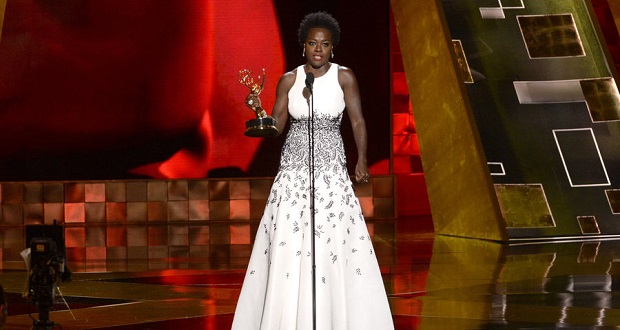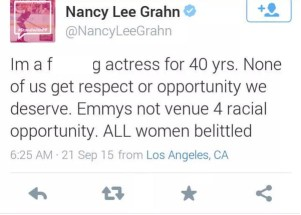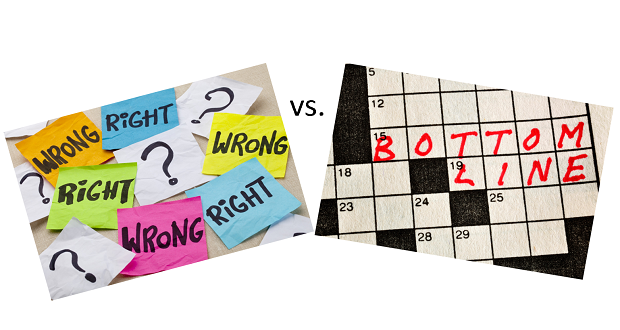
I make it a point not to watch Hollywood awards shows. I think they’re superficial and are intended to feed the egos of those in Hollywood, who are probably the last people who need their egos fed. I’ve often said I’ll start watching those shows when they create as much hype for awards for everyday people – like teachers, firemen and women, nurses, doctors, moms, dads, and diversity professionals. (Yes, that was a shameless plug….)
Sunday night I happened to be switching channels, and turned to the Emmys right as the nominees for the Best Actress in a Drama Series were being announced. For some reason, I decided to watch. A surprised Viola Davis was revealed as the winner. I watched her walk to the stage to accept her award, and I decided to listen to her speech. The announcer said it was her first nomination and first award. At the time, I didn’t realize she was making history.
And then, she spoke:
I sat, with tears in my eyes, as she talked about dividing lines and opportunity and beauty and being Black. Her speech was magnificent and provocative. She thanked those who had created opportunity and those who had broken barriers.
But Viola Davis’ speech for her historic win was marred by criticism. People said she shouldn’t be using the stage to speak about the things she was speaking about. Never mind that countless other actors had used this forum for their agendas in the past. Never mind that Patricia Arquette (a White woman) had been praised for addressing women’s rights at the Oscars. What was different about Ms. Davis’ speech?

Soap opera actress, Nancy Lee Grahn, posted in a since deleted tweet.
It was about color.
It forced White people to have to admit that there were biases around women of color in Hollywood, and perhaps, around the world.
It addressed the fact that, as much as we want to believe in equality in the United States, not everyone is equal. Not everyone has opportunity. Not even Julliard-trained, beautiful, talented actresses.
It brought to the forefront just how damaging a philosophy of “colorblindness” can be. One of the most harmful things we’ve done in white America is to sweep color under the rug. We choose to ignore it and to say that “we don’t see color.” We can’t not see it. To say otherwise is to avoid having the conversations we need to be having. To say otherwise is lying.
Until we can start to accept these ideas and get past our fears to talk about them, color and racism will fester like the deep, infected wound that it is.
Color is real. Color is who we are. Color needs to be talked about. Color matters.



















Very well said, Susan.